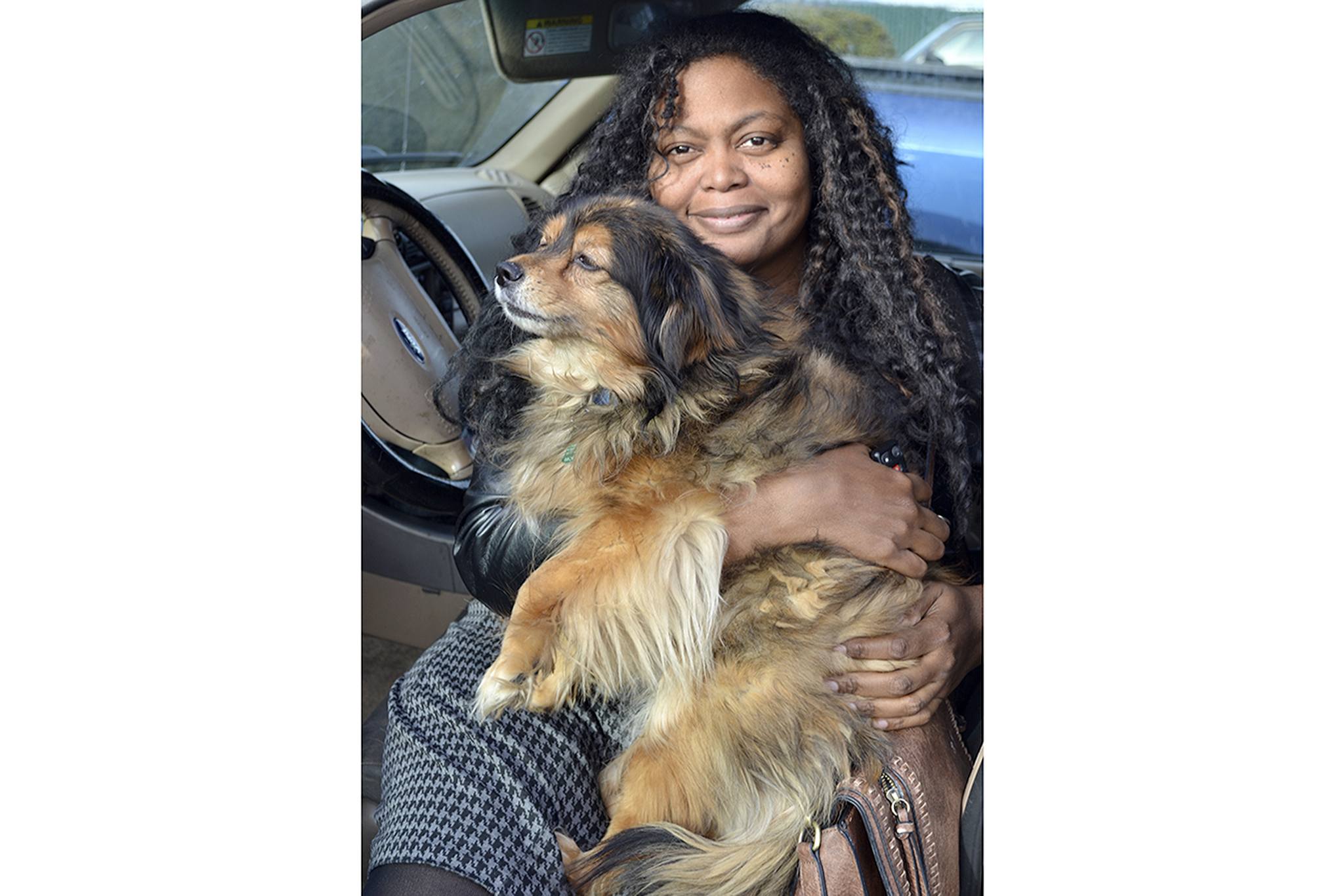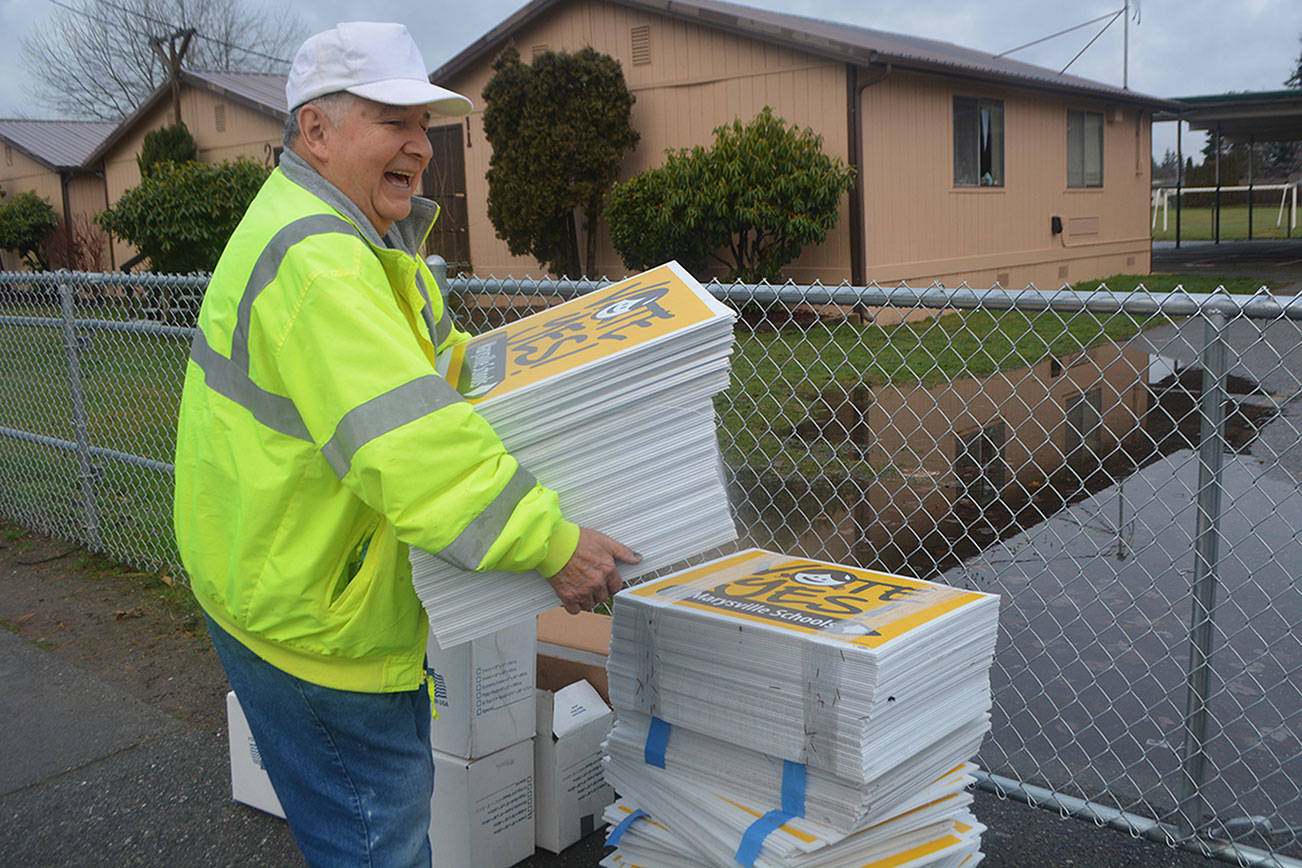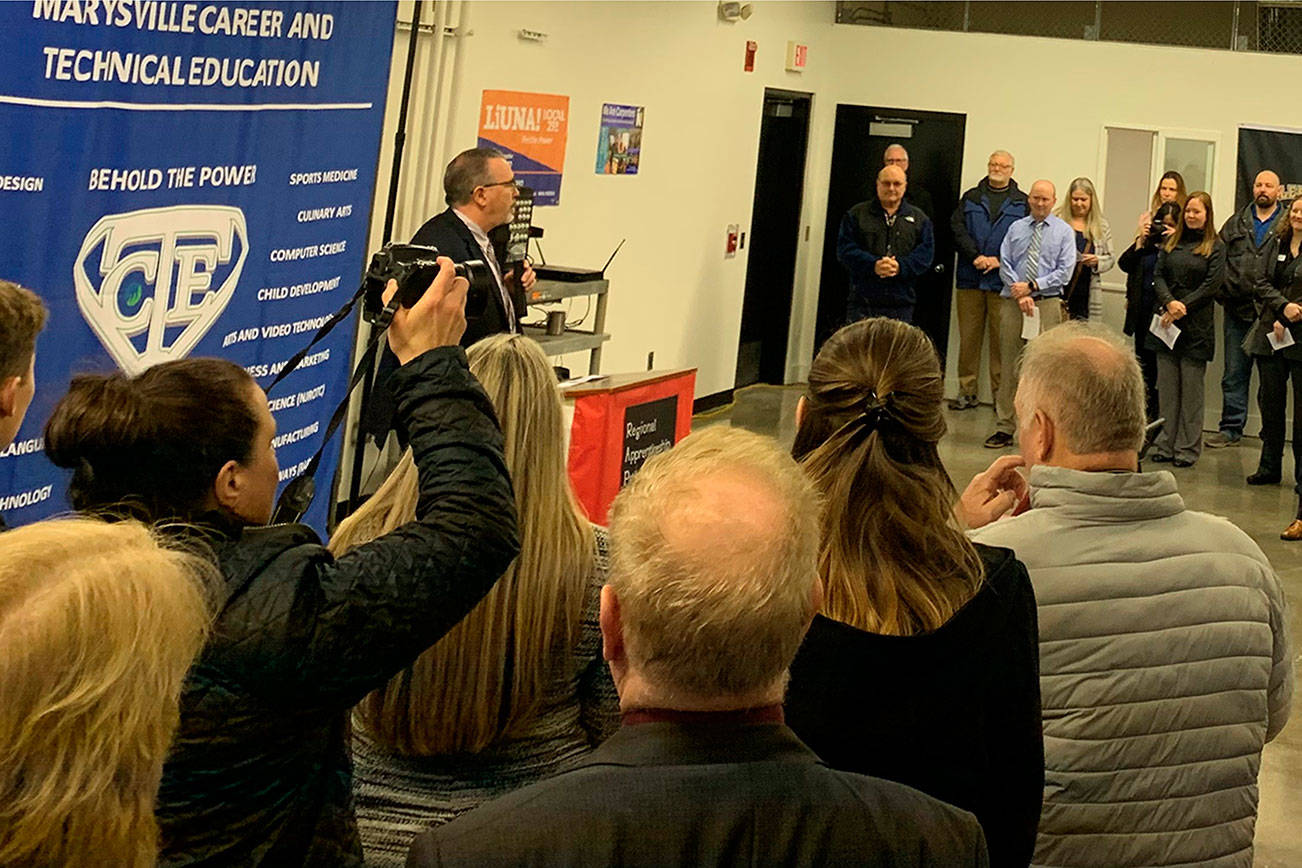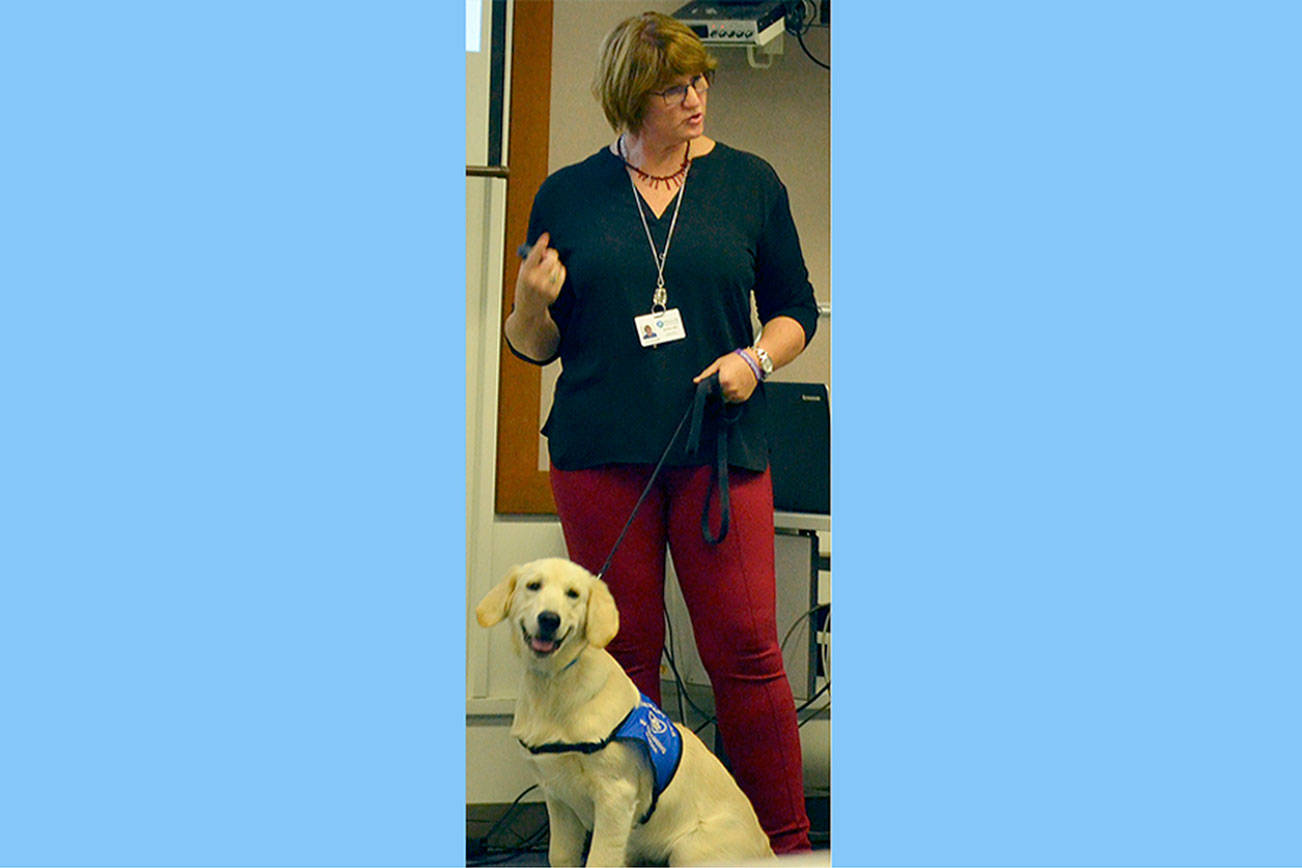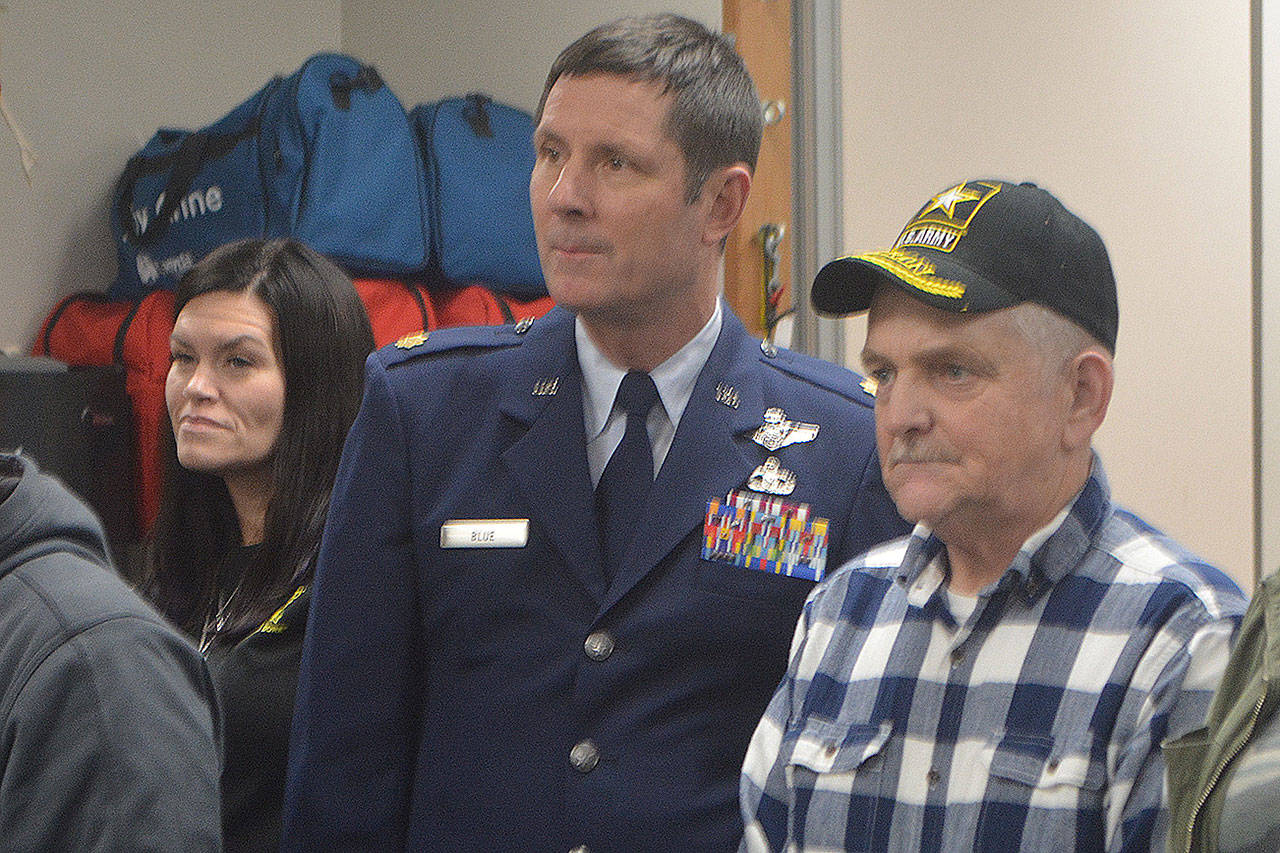By Steve Powell
spowell@marysvilleglobe.com
MARYSVILLE – Like many in this country, Ava Blair Porter wondered why refugees were receiving so much money.
“What about all the homeless vets I encounter?” she asked. Porter is an expert on the homeless. For 1 1/2 years she has been researching the homeless in the Marysville, Arlington and other spots north of Seattle and into Canada. She plans to end her research in May and write a book called, “Teacher Gettin’ Taught.”
It’s not the first time she’s done this. She started her research in December of 2011 in Annapolis, MD.
“There were foreclosures right and left in the D.C. area,” she said. She saw some folks sleeping in a car at a Denny’s. “Health issues wiped out their savings,” she said. “The shutters came off my eyes.”
The former writing instructor decided then what her first book would be about. “I wanted to do something to help society,” she said.
Porter said there are major differences between the homeless on the two coasts. Out here, she finds most of them to be either drug addicts or mentally ill. Back east, more are homeless for economic reasons: house foreclosures, job loss, etc.
Porter is a graduate with a psychology major and sociology minor from Huntington College in Montgomery, Ala.
“I could have easily been one of them,” she said of the homeless.
She said her mom suffered from mental illness so her grandmother raised her and was verbally abusive. Porter also said she was sexually abused.
“I’d go to school then come back to hell,” she said. “The majority of my life I felt homeless. Home was not a sanctuary where I felt safe. Living in cars is the closest I’ve ever felt to being home.”
She received counseling at age 19 and was able to become positive, despite being a single mom working three jobs.
“Never allow someone else to steal away your life,” she said.
Since January of 2015 she’s had a constant companion, Anessa, a dog who is half-cocker and half-Pomeranian. Nessie’s protective bark helps keep Porter safe.
She said she has felt safer overall out west, but, “Part of me is always awake.”
She came west with a boyfriend, but when they split, she decided to stay and do research here.
Porter works four nights a week locally as a security guard, the other three doing research. She thought it would be a “piece of cake” since she’d done it before, but that hasn’t been the case.
It’s the “stuff we take for granted” that has to be planned out, such as negotiating with businesses on when to use the bathroom.
Each night she has to figure out when to stop drinking liquids because some gas stations lock up restrooms, often because drug overdoses have happened there. She has her stuff packed in the back of her SUV. She likes to park at rest stops because they are safer than on the streets.
Porter isn’t going to shelters when it’s cold or going to homeless feeds. “My persona is survival – to feel what it’s like to be grungy,” she said.
Drugs are much worse out west, she said. Porter said it’s a drug corridor up and down Interstate 5 to British Columbia. Washington’s also a Top 10 state for suicides. She said it doesn’t make sense because economically there is so much to offer with Boeing, Microsoft, Starbucks, etc. She said there is a lot of drug activity at Twin Lakes Park. “Watch for needles,” she warned moms who take their kids there.
She did applaud law enforcement generally and Sheriff Ty Trenary specifically to get the public to bring in unused medicine, “which is where kids get started.” “So many programs are not working,” she said, and many communities don’t like some that can help, such as methadone clinics and needle exchange programs.
Porter has found out that some homeless choose that lifestyle.
“People do this to save money,” she said. She said some are divorced, homeless temporarily to save up deposit money for rent.
“The difference is emotion,” she said, adding they know there will be an end time, while others have lost hope.
Porter recommends not giving money to homeless. “Some people go up to cars as high as a kite,” she said. “Give them food” instead.
You may not get the best response. She knows of a ring of panhandlers in the Smokey Point area.
“You offer food, and they swear at you,” she said.
She said she lives by faith and has experienced a “lot of joy” on her journey. “You can lose sight of the good” dealing with so much bad, she said.
Porter certainly didn’t look like she was undercover as a homeless person. She was dressed in a skirt and nice warm coat. “What does homeless look like? You never know. Your co-worker could be homeless.”
-Ava Blair Porter can be found on Facebook, GoFundMe and LinkedIn.
